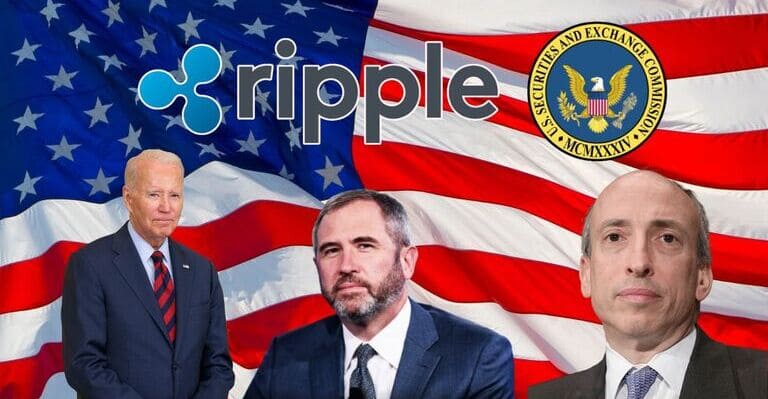TL;DR
- Brad Garlinghouse, CEO of Ripple, suggested that Gary Gensler could negatively impact Joe Biden’s electoral chances in November.
- At the Bloomberg Invest Summit, Garlinghouse criticized Gensler’s cryptocurrency policies, accusing him of unfairly harming the sector and making unfounded comments.
- Mark Cuban supports the criticisms, warning that Gensler’s actions could alienate young and independent voters in the 2024 elections.
Ripple (XRP) CEO Brad Garlinghouse has suggested that Gary Gensler, chairman of the U.S. Securities and Exchange Commission (SEC), could be responsible for potentially causing Joe Biden’s defeat in the November presidential elections.
During a conference at the Bloomberg Invest Summit in New York, Garlinghouse sharply criticized Gensler’s policies regarding the crypto industry, accusing him of unfairly harming companies in the sector and making unsubstantiated negative comments.
Absolute nonsense coming from @GaryGensler today.
And this slander about “all crypto execs going to jail” from the man who completely missed FTX (and actually cozied up to SBF), and wasn’t even invited to the DOJ announcement about Binance.
If he was really “working for the… https://t.co/c3ynB5Gncl
— Brad Garlinghouse (@bgarlinghouse) June 25, 2024
Garlinghouse’s statements add to a wave of criticism against Gensler from prominent figures in the business and crypto sectors. Garlinghouse dismissed Gensler’s claims about crypto executives facing legal battles as “absolute nonsense.” He also noted Gensler’s absence from key industry events, such as the Department of Justice conference on Binance, suggesting a lack of understanding and connection with the crypto community.
Industry Joins Ripple CEO’s Criticism
The dispute between Ripple and the SEC has been on the table since 2020, when the regulatory agency accused Ripple of raising $1.3 billion through the sale of XRP as an unregistered security. While courts have issued mixed decisions on the nature of the cryptocurrency’s sales, the controversy has exacerbated regulatory tensions within the U.S. crypto sector and influenced public perception of the SEC and its leadership.

On the other hand, billionaire entrepreneur Mark Cuban has backed Garlinghouse’s criticisms. Arguing that Gensler’s restrictive policies could alienate young and independent voters in the 2024 elections. This stance suggests that the SEC’s decisions under Gensler could have significant political repercussions in an election campaign heavily influenced by technology and the digital world.
In the United States, the debate continues over striking a balance between financial innovation and consumer protection. Beyond Garlinghouse’s statements and those of other industry figures against Gensler. It’s evident that unlike Biden. Other candidates like Kennedy and Trump are seeking to capitalize on support from the crypto industry and the public.

